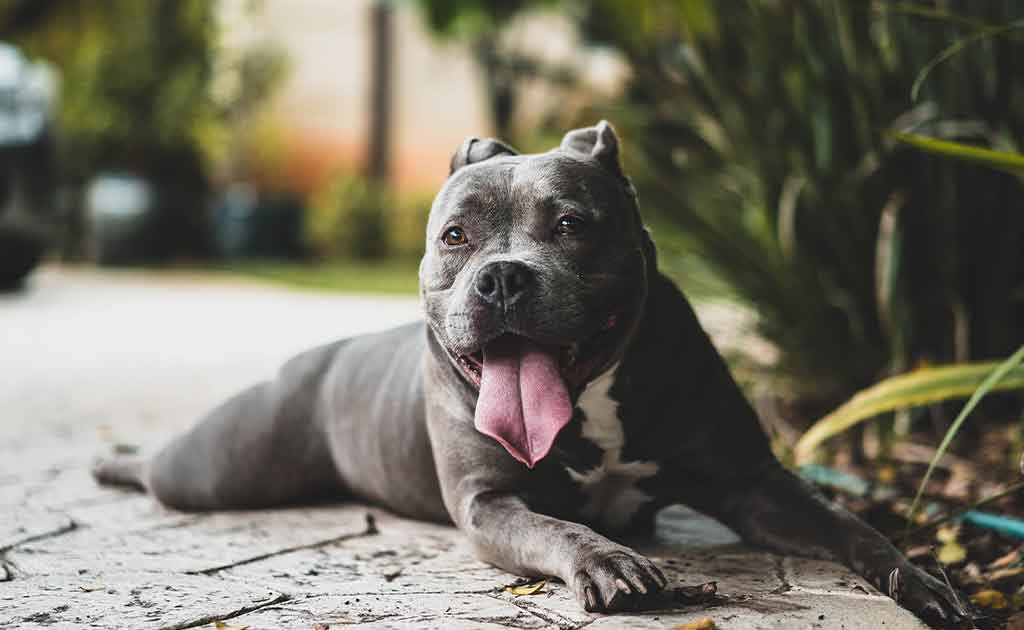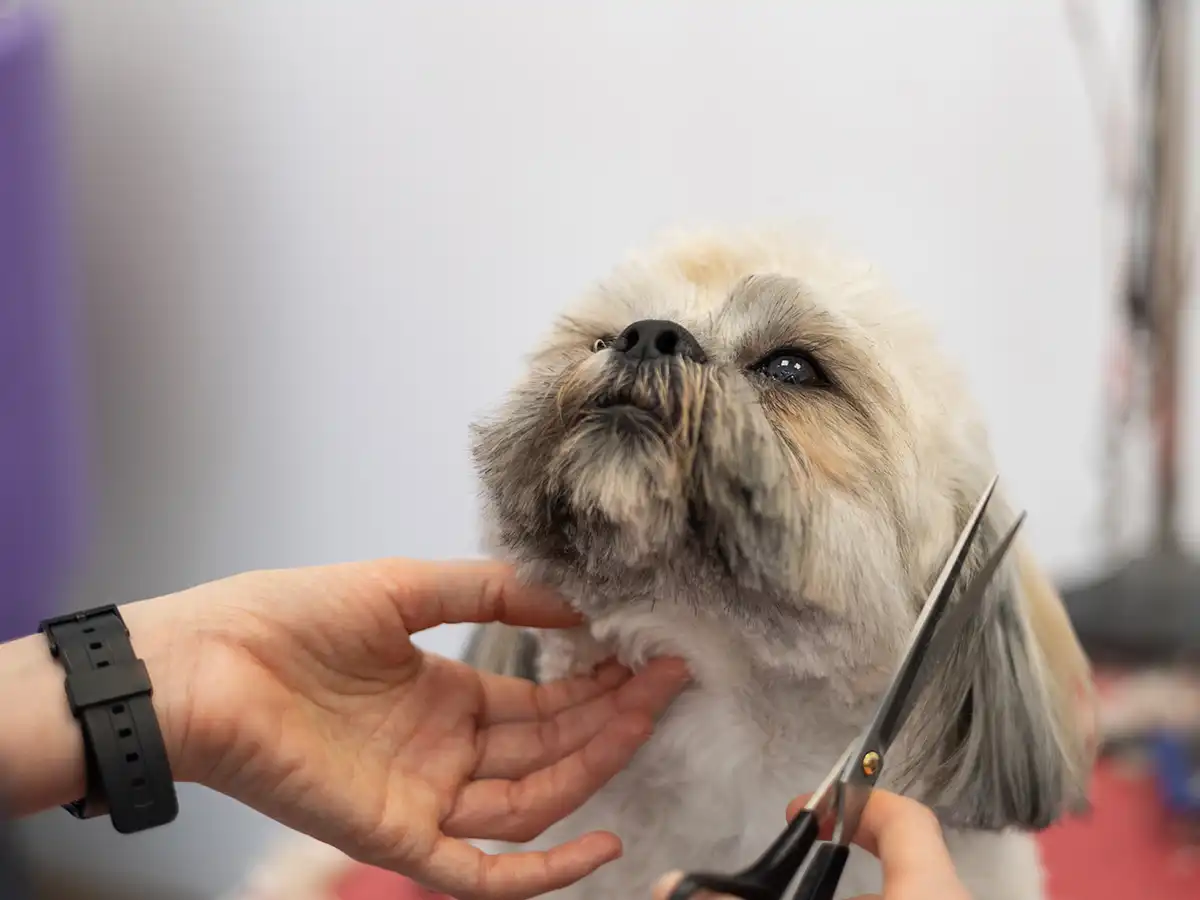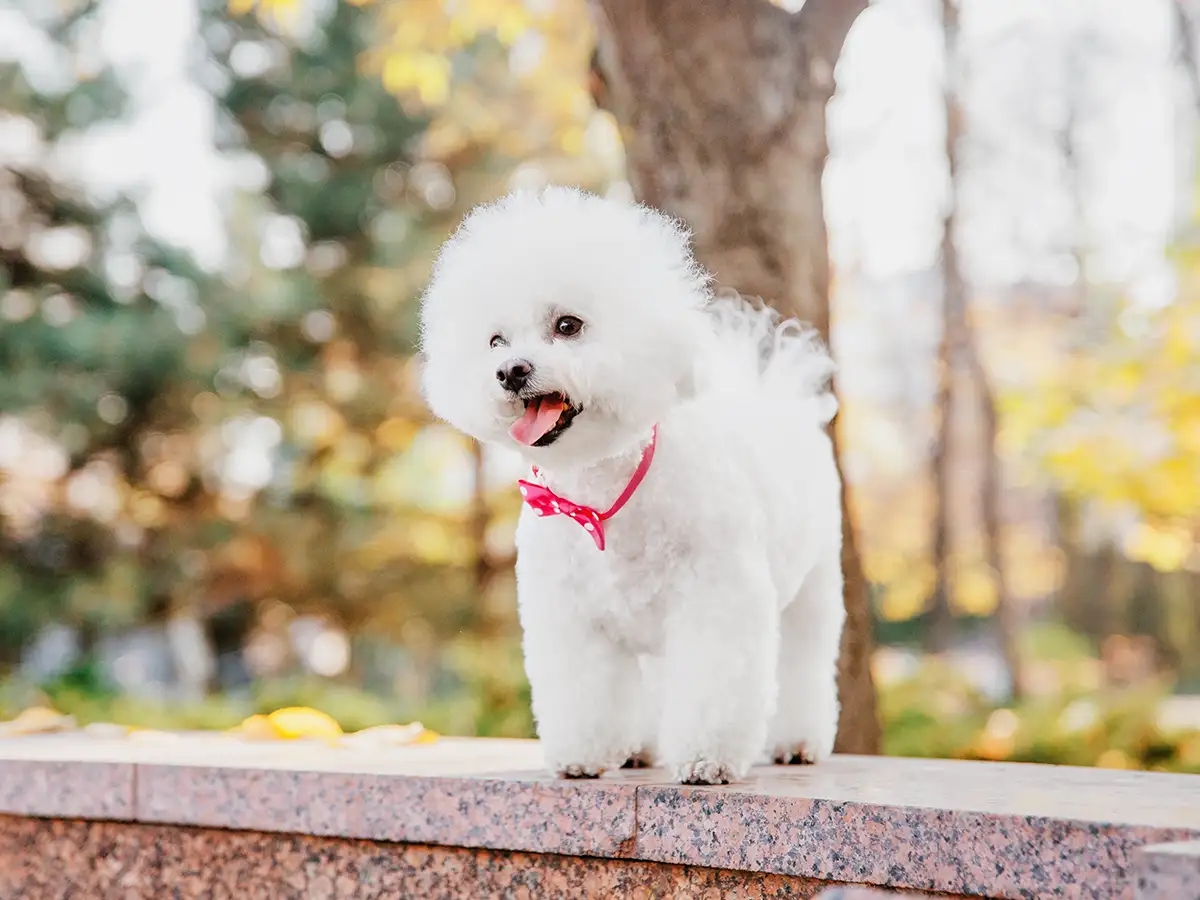Pitbull dogs, often referred to as American Pit Bull Terriers, stand at the centre of a longstanding debate surrounding their temperament, behaviour, and overall suitability as family pets. In this comprehensive guide, we aim to demystify the common misconceptions surrounding Pitbulls, shedding light on their true nature, unique characteristics, and the factors that contribute to their misunderstood reputation.
Pitbull dogs have, unfortunately, become synonymous with negative stereotypes, often depicted as aggressive and dangerous. However, it’s crucial to recognize that these stereotypes are rooted in misinformation and lack of understanding. Our journey into the world of Pitbulls will unravel the layers of misconception, allowing readers to form an informed opinion based on facts rather than perpetuated myths.
The term Pitbull dog often elicits fear or concern due to media portrayal and misconstrued anecdotes. Yet, beneath the surface lies a breed with a rich history, diverse talents, and a capacity for unwavering loyalty. By exploring the true essence of the Pitbull dog, we aim to challenge preconceived notions and encourage a more nuanced perspective that acknowledges their positive attributes.
The Pitbull breed is renowned for its strength, intelligence, and versatility. Initially bred for bull-baiting, these dogs later evolved into reliable farm hands and even earned the endearing title of “nanny dogs” in the early 20th century. Contrary to popular belief, their natural disposition is not one of inherent aggression but rather a reflection of their upbringing, environment, and the quality of care they receive.
As we delve into the history of the pit bull, it becomes evident that their diverse roles in society have shaped their character. From working on farms to being valued members of families, Pitbulls have shown adaptability and resilience. Understanding their historical context is essential to appreciate the factors that have contributed to their misunderstood reputation in contemporary times.
The myths and misconceptions surrounding the Pitbull dog have become deeply ingrained in public perception. It’s imperative to recognize that any breed’s behaviour is not solely determined by genetics but is heavily influenced by the training and socialization it receives. Through proper care and positive reinforcement, Pitbulls can display the same affectionate and gentle traits as any other breed.
In the upcoming sections of this guide, we’ll delve into the importance of training and socialization for Pitbull dogs. We’ll explore the impact of responsible ownership on shaping their behaviour, debunking the myth of an inherently aggressive breed. By understanding the significance of early intervention and positive reinforcement, readers will gain valuable insights into fostering a well-behaved and loving Pitbull companion.
Join us on this enlightening journey through the world of Pitbulls as we unravel the layers of misinformation, challenge stereotypes, and advocate for a more compassionate and accurate understanding of the Pitbull dog. By the end of this guide, we hope that readers will emerge with a newfound appreciation for these loyal and misunderstood companions.
Table of Contents
Understanding the Pitbull Dog Breed: A Deep Dive into the Resilient Pitbull Dog Breed
The Pitbull Dog Breed has been a topic of much discussion, surrounded by misconceptions and stereotypes that often overshadow their true nature. In this comprehensive exploration, we aim to shed light on the essence of the Pitbull Dog Breed, unravelling the intricacies of their history, characteristics, and the need for responsible ownership.
The Pitbull Dog Breed, officially known as American Pit Bull Terriers, has gained notoriety for their strength, intelligence, and unparalleled loyalty. Despite their steadfast devotion, the breed has been unfairly stigmatized, leading to misconceptions about their temperament. It is crucial to dispel these myths and delve into the fundamental nature of Pitbulls, understanding that with proper training and socialization, they can be exemplary family pets.
To truly understand the Pitbull Dog Breed, we must explore its rich history. Initially bred for bull-baiting and later as farm dogs, Pitbulls exhibited their versatility by being cherished as “nanny dogs” in the early 20th century. This historical context provides insight into the breed’s adaptability and affectionate nature, challenging the negative narratives that have persisted over time.
Now, let’s examine the myths and misconceptions that surround the Pitbull Dog Breed. One common misconception is that Pitbulls are inherently aggressive. The truth is that a dog’s behaviour is primarily influenced by its upbringing, training, and environment. Responsible ownership plays a pivotal role in shaping a pit bull’s temperament, and positive reinforcement techniques can foster gentle and friendly behaviour.
Training and socialization are paramount when it comes to the Pitbull Dog Breed. Early exposure to various people, environments, and situations, coupled with positive reinforcement, is critical to ensuring that Pitbulls grow up to be well-adjusted and friendly companions. By focusing on training and socialization, we empower owners to bring out the best in their Pitbulls, nurturing positive behaviours and mitigating potential challenges.
In terms of health and care, Pitbulls are generally robust dogs. Regular veterinary check-ups, a balanced diet, and ample exercise contribute to their overall well-being. Grooming requirements are minimal, making them relatively low-maintenance in the care department. Understanding the unique health considerations of the Pitbull Dog Breed is essential for providing the best possible care and ensuring a happy, healthy life for these resilient dogs.
Pitbull advocacy is a crucial aspect of changing perceptions surrounding the breed. Advocacy involves challenging stereotypes, promoting responsible ownership, and fostering positive interactions. Numerous Pitbull advocacy groups work tirelessly to dispel myths and emphasize the importance of judging individual dogs based on their behaviour, not their breed. By actively participating in advocacy efforts, we contribute to dismantling negative perceptions and building a more inclusive and compassionate view of the Pitbull Dog Breed.
In conclusion, understanding the Pitbull Dog Breed requires a nuanced approach that goes beyond stereotypes. By acknowledging their rich history, dispelling myths, and embracing responsible ownership, we pave the way for a more accurate and positive understanding of these loyal and resilient companions. Let us appreciate the Pitbull Dog Breed for the incredible pets they are and work towards fostering a culture of compassion and understanding in the realm of canine companionship.
The history of the pitbull dog
The history of the Pitbull dog breed is a fascinating journey that spans centuries, marked by versatility, strength, and a deep connection with humanity. The Pitbull, officially known as the American Pit Bull Terrier, has a complex lineage that can be traced back to the early 19th century.
Origins and Purpose:
The roots of the Pitbull date back to England, where Bulldogs and Terriers were selectively bred for the sport of bull-baiting. This brutal activity involved releasing a bull into an arena and setting dogs on it to immobilize the animal. In the pursuit of creating a formidable fighting dog, the Bulldog and Terrier were crossbred, giving rise to the foundation of the Pitbull dog breed.
Transition to America:
The 19th-century migration to America brought these dogs across the Atlantic, and their purpose evolved. Pitbulls were no longer primarily used for bull-baiting, as the sport had been outlawed. Instead, they found new roles as working dogs on farms, helping with tasks such as herding cattle and protecting property.
Nanny Dogs and All-American Symbol:
In the early 20th century, Pitbulls earned a reputation as “nanny dogs” due to their gentle and protective nature, especially towards children. Famous personalities like Helen Keller and Theodore Roosevelt had Pitbulls as beloved family pets, contributing to their popularity and positive image.
World War I and Symbolism:
During World War I, Pitbulls were featured prominently in American propaganda as symbols of strength, courage, and loyalty. Their representation in posters and advertisements emphasized their patriotism and resilience, further cementing their place in the American cultural narrative.
Challenges and Controversies:
While Pitbulls were once celebrated, the breed later faced challenges as it became associated with illegal dog fighting. The dark underbelly of this activity tarnished the public perception of Pitbulls, leading to breed-specific legislation in various regions. Unfortunately, these measures often failed to address the root causes of aggression in dogs and perpetuated stereotypes.
Versatility and Adaptability:
Pitbulls’ versatility has been evident throughout history. Their intelligence and agility have made them successful in various roles, including police work, search and rescue, and even therapy assistance. Their adaptability to different environments and tasks showcases the breed’s resilience and capacity for positive contributions.
Modern Advocacy and Rehabilitation:
In recent years, passionate advocates have emerged to challenge the negative stereotypes surrounding Pitbulls. Organizations dedicated to the breed’s welfare focus on responsible ownership, positive training methods, and dispelling myths about their temperament. Many rescued Pitbulls, once victims of abusive situations, have been successfully rehabilitated and become loving family members.
Conclusion:
The history of the Pitbull dog breed is a tale of evolution, resilience, and adaptation. From their origins in the brutal sport of bull-baiting to becoming symbols of American strength and loyalty, Pitbulls have weathered challenges and controversies. While the breed has faced adversity, it continues to demonstrate its positive traits when provided with proper care, training, and responsible ownership. Understanding the historical context of the Pitbull dog breed is essential in dispelling myths and fostering a more accurate and positive perception of these remarkable animals in our modern society.
Title: Myths and Misconceptions About Pitbull Dogs: Dispelling Stereotypes

Pitbull dogs have long been victims of unfair stereotypes and misconceptions that have painted them in an unfavourable light. These myths often contribute to misunderstandings about their temperament, behaviour, and suitability as family pets. In this article, we aim to debunk these myths and shed light on the truth about Pitbull dogs.
Myths and Misconceptions:
Pitbulls are inherently aggressive: One of the most prevalent myths about Pitbull dogs is that they are born aggressive. In reality, a pit bull’s behaviour is primarily shaped by factors such as upbringing, training, and socialization. With proper care, Pitbulls can be affectionate and gentle companions.
Pitbulls have locking jaws: Contrary to popular belief, Pitbulls do not have a locking mechanism in their jaws. Their jaw structure is no different from that of other dog breeds. This misconception has contributed to the unfounded fear surrounding these dogs.
Pitbulls are not suitable for families: This myth has led many to believe that Pitbulls are not good family dogs. On the contrary, Pitbulls are known for their loyalty and can be excellent family pets when raised in a loving and caring environment. They are often referred to as “nanny dogs” for their protective and affectionate nature towards children.
Pitbulls are unpredictable: Some people believe that Pitbulls are unreliable and prone to sudden acts of aggression. In reality, any dog can display aggressive behaviour if mistreated or neglected. Responsible ownership and proper training play crucial roles in shaping a pit bull’s behaviour.
Pitbulls cannot be trained: Another misconception is that Pitbulls are difficult to train. In truth, Pitbulls are intelligent and eager to please, making them highly trainable. Positive reinforcement techniques and consistent training help bring out the best in their obedient nature.
Pitbulls are a specific breed: The term “Pitbull” is often used as a generic label for several breeds, including the American Pit Bull Terrier, American Staffordshire Terrier, and Staffordshire Bull Terrier. Each of these breeds has its distinct characteristics, and generalizing them perpetuates misunderstandings.
Pitbulls are more likely to bite: Studies have consistently shown that no particular breed is more predisposed to biting than others. Breed-specific legislation (BSL) based on this myth has been debunked, as factors like socialization, training, and the owner’s behaviour play a more significant role in a dog’s behaviour.
Pitbulls should be kept isolated: Some believe that Pitbulls should be kept away from other dogs and people due to their perceived aggression. In reality, early socialization is crucial for Pitbulls to develop good behaviour and adapt to various situations.
Pitbulls are not good with children: As mentioned earlier, Pitbulls are often referred to as “nanny dogs” for their affectionate nature towards children. Like any other dog breed, proper supervision and training are essential to ensure a harmonious relationship between Pitbulls and children.
Pitbulls have a high pain tolerance: This myth has been debunked by veterinary professionals. Pitbulls, like other dogs, experience pain, and relying on this misconception can lead to inadequate care and attention to their health needs.
Conclusion:
Dispelling myths and misconceptions about Pitbull dogs is crucial for fostering a more accurate understanding of this beloved breed. By focusing on responsible ownership, proper training, and positive interactions, we can contribute to changing the narrative and appreciating Pitbulls for the loyal and loving companions they genuinely are.
Training and Socialization: Unlocking the Potential of Your Pitbull Dog

Training and socialization are pivotal aspects of raising a well-adjusted and obedient Pitbull dog. These intelligent and loyal companions thrive when given the proper guidance and exposure to various experiences from an early age. In this guide, we’ll explore the critical elements of training and socialization, emphasizing the positive impact they can have on your Pitbull dog’s behaviour.
Begin Early for Optimal Results
Training and socialization are crucial for pitbull dogs. Puppies are like sponges, absorbing information and forming habits rapidly. Introduce basic commands such as sit, stay, and come as early as 8 weeks old. This foundational training builds the framework for more advanced orders later on.
Positive Reinforcement: The Key to Success
Pitbull dogs respond exceptionally well to positive reinforcement. Rewarding good behaviour with treats, praise, or playtime creates a positive association, motivating them to repeat the desired actions. This approach fosters a strong bond between you and your Pitbull, making the training process enjoyable for both.
Consistency is King
Consistency is paramount in Pitbull dog training. Establish clear rules and boundaries, and ensure that all family members follow them consistently. A united front helps prevent confusion for your dog and reinforces the importance of obedience.
Socialization: A Lifelong Journey
Socialization is an ongoing process that continues beyond the puppy stage. Expose your pit bull to various environments, people, and animals to help them develop into well-rounded individuals. Regular positive interactions with different individuals and situations contribute to a confident and friendly Pitbull.
Controlled Environments for Positive Experiences
When introducing your pit bull to new experiences, ensure the environment is controlled and safe. Gradually expose them to different sounds, surfaces, and people. This controlled exposure helps build their confidence and reduces the likelihood of fear or anxiety in unfamiliar situations.
Leash Training for Better Control
Leash training is a crucial component of socialization. Teach your Pitbull to walk on a leash without pulling, promoting better control during walks. This skill is not only practical for your daily outings but also contributes to a well-behaved and manageable dog.
Incorporate Interactive Play
Interactive play is an excellent way to reinforce training commands while allowing your Pitbull to burn off excess energy. Toys that encourage problem-solving and mental stimulation are particularly beneficial for this intelligent breed.
Addressing Aggression Through Training
While aggression is not inherent to Pitbulls, any breed can display aggressive behaviour if not properly trained. Addressing signs of attack early on is essential. Consult with a professional trainer if needed, and focus on positive reinforcement techniques to redirect undesirable behaviours.
Ongoing Training for Mental Stimulation
Pitbull dogs thrive on mental stimulation, and ongoing training provides an excellent outlet. Introduce new command tricks or even engage in canine sports to challenge their intellect and keep them engaged.
Patience and Understanding
Patience and understanding are virtues in the training process. Pitbulls are eager to please, but each dog is unique. Be patient with their progress, and tailor your approach to their individual needs. Celebrate small victories, and remember that a well-trained Pitbull is a testament to your dedication as a responsible owner.
In conclusion, training and socialization are indispensable elements in nurturing a well-behaved and balanced Pitbull dog. Through positive reinforcement, consistency, and ongoing exposure to diverse experiences, you’ll unlock the full potential of your Pitbull, fostering a strong bond and a harmonious relationship. Embrace the journey of training and socialization, and you’ll enjoy the rewards of having a loyal, well-mannered companion by your side.
Health and Care: Unveiling the Secrets to a Thriving Pitbull Companion

Pitbull dogs, renowned for their strength, agility, and unwavering loyalty, are not only lovable family pets but also resilient beings when provided with the proper care. In this comprehensive guide, we will explore the critical aspects of maintaining the health and well-being of your Pitbull dog.
Regular Veterinary Check-ups:
Routine veterinary check-ups are paramount for ensuring your Pitbull’s overall health. Schedule annual visits for vaccinations, dental care, and preventive measures against common ailments. Early detection of any health issues can significantly improve the chances of successful treatment.
Balanced Diet:
Proper nutrition is the foundation of a healthy Pitbull. Ensure your dog’s diet is well-balanced, providing essential nutrients for growth, energy, and immune system support. Opt for high-quality dog food, and consider consulting your vet for guidance on the best dietary choices for your pit bull.
Adequate Exercise:
Pitbulls are known for their energetic nature, requiring regular exercise to maintain a healthy weight and mental well-being. Engage in daily walks, play fetch, or provide stimulating toys to keep your pit bull physically and mentally stimulated. A tired Pitbull is a happy and well-behaved one.
Regular Grooming:
Despite their short coat, Pitbulls benefit from regular grooming sessions. Brush their coat to minimize shedding and promote shiny, healthy skin. Keep their ears clean, trim nails regularly, and practice good dental hygiene. These simple grooming habits contribute to a comfortable and content Pitbull.
Hydration is Key:
Always ensure your Pitbull has access to clean and fresh water. Proper hydration is crucial for their overall health, helping to regulate body temperature, aid digestion, and support organ function.
Parasite Prevention:
Protect your Pitbull from common parasites such as fleas, ticks, and worms. Use veterinarian-recommended preventive measures and conduct regular checks after outdoor activities. Promptly address any signs of infestation to avoid potential health issues.
Mental Stimulation:
In addition to physical exercise, Pitbulls thrive on mental stimulation. Incorporate puzzle toys, interactive games, and training sessions into their routine. Not only keeps them entertained but also strengthens the bond between you and your furry friend.
Maintaining a Healthy Weight:
Maintaining an optimal weight is crucial for your Pitbull’s overall health. Obesity can lead to various health problems, including joint issues and cardiovascular issues. Consult with your vet to determine the appropriate diet and exercise plan for your Pitbull’s specific needs.
Routine Dental Care:
Dental health is often overlooked but is a critical aspect of overall well-being. Implement a regular dental care routine, including brushing your Pitbull’s teeth and providing dental treats or toys. Good oral hygiene can prevent dental issues and contribute to a longer, healthier life.
Regular Play and Socialization:
Pitbulls are social animals that thrive on companionship. Regular playtime with you, other pets, or well-socialized dogs is essential for their emotional well-being. Positive social interactions contribute to a well-adjusted and happy Pitbull.
In conclusion, providing comprehensive health and care for your Pitbull involves a combination of proper nutrition, regular veterinary check-ups, exercise, grooming, and mental stimulation. By incorporating these practices into your Pitbull’s routine, you’ll be ensuring a happy, healthy, and thriving companion for years to come.
Pitbull Advocacy: Dispelling Myths and Celebrating a Misunderstood Breed
Pitbull dogs, often misunderstood and unfairly stigmatized, deserve a spotlight on advocacy efforts aimed at promoting positive awareness, debunking myths, and fostering responsible ownership. In the realm of Pitbull advocacy, it is crucial to emphasize the individual nature of these dogs and dispel preconceived notions about the breed.
Pitbulls have long been victims of harmful stereotypes that label them as inherently aggressive or dangerous. Pitbull advocacy seeks to challenge these misconceptions and highlight the fact that a dog’s behaviour is more influenced by factors such as upbringing, training, and environment than its breed. Through education and positive exposure, we can work towards changing public perceptions of Pitbull dogs.
One key aspect of Pitbull advocacy is promoting responsible ownership. Owners play a pivotal role in shaping a pit bull’s behaviour through training, socialization, and providing a loving environment. Responsible ownership involves understanding the breed’s characteristics, meeting their physical and mental needs, and being aware of any potential challenges.
Pitbull advocacy groups actively engage in community outreach programs to educate the public about the true nature of Pitbull dogs. By organizing events, seminars, and informational campaigns, these groups aim to replace fear with understanding and encourage prospective owners to consider adopting a pit bull from reputable sources.
It’s important to note that Pitbulls, like any other breed, can be loving, loyal, and well-behaved when raised in a positive environment. The keyword “Pitbull dog” underscores the focus of Pitbull advocacy efforts, emphasizing the individuality of each dog and steering the conversation away from harmful generalizations.
Pitbull advocacy extends beyond dispelling myths to addressing breed-specific legislation (BSL), which often unfairly targets Pitbulls and other breeds. Advocates work tirelessly to challenge and overturn such rulings, emphasizing the importance of assessing dogs based on their behaviour rather than their appearance.
In the realm of Pitbull advocacy, fostering positive interactions is paramount. By showcasing well-behaved Pitbulls in various roles, such as therapy dogs, service dogs, or family pets, advocates aim to counteract negative stereotypes. This positive exposure helps break down barriers and allows people to see the loving and gentle side of Pitbulls.
Rescue organizations play a significant role in Pitbull advocacy by providing homes for Pitbulls in need. These organizations not only rescue and rehabilitate Pitbulls but also work to change public perceptions through success stories and positive experiences. The repeated use of the keyword “Pitbull dog” emphasizes the focus on advocacy for this specific breed.
In conclusion, Pitbull advocacy is a multifaceted effort aimed at dispelling myths, promoting responsible ownership, and celebrating the true nature of Pitbull dogs. By focusing on education, positive exposure, and challenging discriminatory legislation, advocates contribute to changing the narrative surrounding Pitbulls. These efforts are essential for creating a more inclusive and understanding society that recognizes the individuality and potential of Pitbull dogs.
Conclusion:
In conclusion, the Pitbull dog is an extraordinary breed that deserves to be recognized for its positive attributes rather than perpetuating unfounded myths. While the Pitbull dog has faced unjust criticism and stigma, it is essential to emphasize the significance of responsible ownership, training, and debunking misconceptions surrounding this beloved breed.
Pitbull dogs, often misunderstood due to their physical strength and historical roles, are, in reality, affectionate and loyal companions. By fostering a deeper understanding of their true nature, we can promote a more positive image of Pitbulls within our communities.
Responsible ownership is a cornerstone in the advocacy for Pitbull dogs. Ensuring proper training, socialization, and healthcare are essential components that contribute to the well-being of any dog, including Pitbulls. By focusing on individual behaviour rather than perpetuating stereotypes, we can pave the way for a more inclusive and compassionate perspective on Pitbulls.
Positive reinforcement techniques play a pivotal role in shaping a pit bull’s behaviour. Whether it’s teaching basic commands, encouraging good manners, or reinforcing positive interactions, these methods are effective in bringing out the best in Pitbull dogs. By incorporating these approaches into our interactions with Pitbulls, we contribute to the creation of well-mannered and amicable canine companions.
Health and care considerations are paramount for the overall well-being of Pitbull dogs. Regular veterinary check-ups, a balanced diet, and ample exercise contribute to their physical and mental health. With their relatively low-maintenance grooming needs, Pitbulls can thrive in various living environments, provided they receive the care and attention they deserve.
In advocating for Pitbull dogs, it is crucial to shift the narrative from fear to understanding. Dispelling myths, promoting responsible ownership, and encouraging positive interactions with Pitbulls are essential steps toward fostering a more inclusive and compassionate society for all dog breeds, including the Pitbull dog. Let’s celebrate the unique qualities of Pitbulls and work together to ensure they are appreciated for the loving and devoted pets they indeed are.

Meet Biplab Roy, the passionate voice behind our blog’s delightful tales of furry and feathered companions. As the proud owner of a charming pet shop and a thriving farm, Biplab’s life revolves around the enchanting world of pets. With a heart full of love for animals and a wealth of experience in caring for them, Biplab brings a unique perspective to our community of pet enthusiasts.
Biplab’s journey into the realm of pets began with a deep-seated affection for these lovable creatures. His pet shop isn’t just a business; it’s a sanctuary for pet lovers seeking advice, supplies, and a warm community. From chirpy birds to playful puppies and everything in between, Biplab’s shop is a haven for those who share his passion.
But Biplab’s connection with animals doesn’t end at the pet shop door. His bustling farm is a testament to his commitment to providing a happy and healthy life for all creatures under his care. Whether it’s the joyous barks of dogs or the gentle clucking of hens, Biplab’s farm is a symphony of harmonious coexistence.
Through the pages of our blog, Biplab shares his insights, anecdotes, and valuable tips on pet care, drawing from his hands-on experience as a devoted pet owner and caretaker. His articles are a delightful blend of heartwarming stories, practical advice, and a genuine love for the diverse world of pets.
Join Biplab on this journey as he explores the ups and downs of pet ownership, offering a warm and knowledgeable companion for fellow pet enthusiasts. Whether you’re a seasoned pet owner or considering bringing a new furry friend into your life, Biplab’s words are sure to resonate and inspire, making your journey into the wonderful world of pets even more rewarding.






